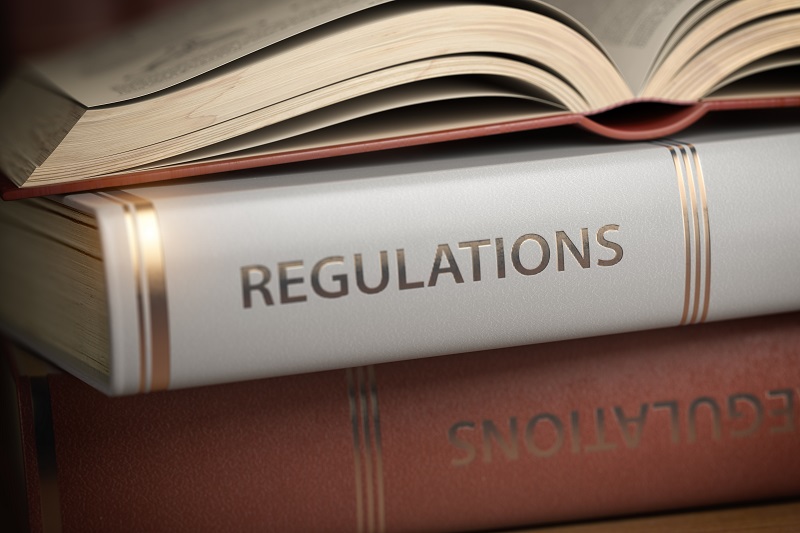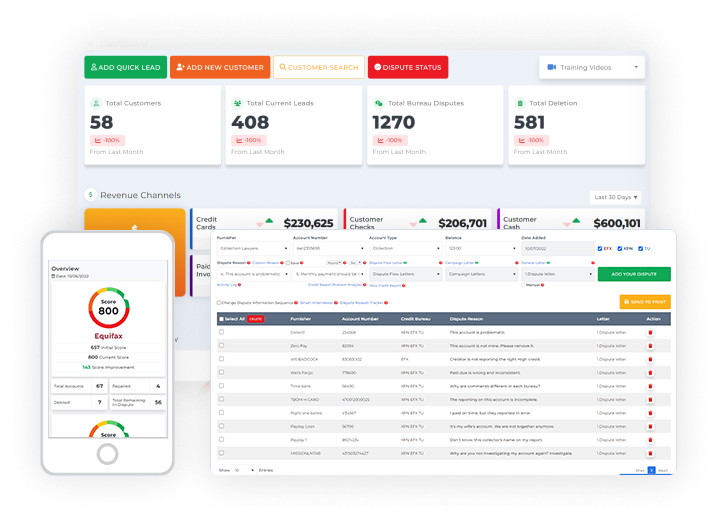Starting a credit repair business in Wisconsin requires more than just expertise in credit restoration; it demands a solid understanding of the legal landscape. In this informative article, we uncover the laws and regulations that govern credit repair businesses in Wisconsin, empowering you with the knowledge to establish a legally compliant and thriving enterprise.
Create A Business Plan

Outline your goals, target market, marketing strategies, and financial projections for your credit repair business. Here are some important components to include:
- Executive Summary: This section provides an overview of your business plan, including your company’s mission statement, goals, and objectives.
- Market Analysis: Conduct a thorough analysis of the credit repair industry in Wisconsin, including market trends, competition, and customer demographics. This analysis will help you identify opportunities and challenges and develop strategies for success.
- Services: Describe the credit repair services you will offer to customers, including credit report analysis, dispute resolution, credit counseling, and other related services.
- Operations: Describe the day-to-day operations of your credit repair business, including staffing, technology, and business processes.
- Financial Plan: Develop a financial plan that includes startup costs, revenue projections, cash flow projections, and profitability projections.
- Legal and Regulatory Compliance: Discuss the legal and regulatory requirements for operating a credit repair business in Wisconsin, including licenses and permits, compliance with state and federal regulations, and liability protection.
- SWOT Analysis: Conduct a SWOT analysis to identify your company’s strengths, weaknesses, opportunities, and threats. Use this analysis to refine your business strategies and identify areas where you need to improve.
Remember to tailor your business plan to your specific business needs and market conditions in Wisconsin. A well-crafted business plan can help you secure funding, attract customers, and guide your business toward success.
Choose A Business Structure

Decide whether you want to operate as a sole proprietorship, partnership, limited liability company (LLC), or corporation. Each structure has different legal and tax implications, so consult with a legal professional or accountant to determine the best option for your business. In Wisconsin, there are several business structures that a credit repair business can choose from, including:
Sole Proprietorship:
A sole proprietorship is the simplest form of business ownership, where an individual runs the business as the sole owner and is responsible for all profits and liabilities.
Partnership:
A partnership is a business owned by two or more people who share in the profits and liabilities of the business. There are two types of partnerships: general partnership and limited partnership.
Limited Liability Company (LLC):
An LLC is a flexible business structure that provides limited liability protection to its owners, while also offering the tax benefits of a partnership.
Corporation:
A corporation is a separate legal entity from its owners and provides the highest level of liability protection. There are two types of corporations: C-corporation and S-corporation.
Register Your Business:

Once you’ve chosen a business structure, register your business with the Wisconsin Department of Financial Institutions (WDFI). This process typically involves filing articles of organization or incorporation, obtaining an employer identification number (EIN) from the IRS, and registering for state and local taxes.
To register your credit repair business with the Wisconsin Department of Financial Institutions (DFI), you will want to follow these general steps:
Visit the Wisconsin DFI Website:
Start by going to the Wisconsin Department of Financial Institutions website.
Choose Your Business Structure:
Determine the legal structure of your business, such as a sole proprietorship, partnership, limited liability company (LLC), or corporation.
Register Your Business:
Depending on your chosen business structure, you may need to register your business with the Wisconsin DFI. For corporations and LLCs, this typically involves filing Articles of Incorporation or Articles of Organization, respectively. You can do this online through the DFI’s Corporate Registration Information System (CRIS).
Obtain Any Required Licenses Or Permits:
You may need to obtain additional licenses or permits, such as a professional license for credit repair or a general business license. The Wisconsin Department of Agriculture, Trade, and Consumer Protection (DATCP) regulates credit repair organizations in the state, and you may need to register with them as well. Visit their website for more information.
Register For Taxes:
Make sure to register your business for state and federal taxes. You can register for a Wisconsin tax identification number through the Wisconsin Department of Revenue’s website.
Please note that these steps are a general overview, and specific requirements may vary depending on your business type and location. It is always a good idea to consult with a legal or financial professional to ensure you are meeting all the necessary requirements.
Obtain Required Licenses and Permits

Wisconsin does not have a specific license for credit repair businesses. However, you may need to obtain a general business license from your local municipality or county. Check with your local government office to determine which licenses and permits are required.
In Wisconsin, credit repair businesses are required to obtain specific licenses and permit to operate legally. Here are some of the licenses and permits that may be required:
Business Registration:
All businesses in Wisconsin are required to register with the Wisconsin Department of Financial Institutions (DFI). This process involves filing articles of organization or articles of incorporation with the DFI.
Wisconsin Seller's Permit:
If you plan to sell any tangible goods, such as credit repair software or credit monitoring services, you may need to obtain a Wisconsin Seller’s Permit from the Wisconsin Department of Revenue.
Credit Services Organization (CSO) Registration:
If you charge customers for credit repair services in Wisconsin, you will need to register as a Credit Services Organization (CSO) with the Wisconsin Department of Financial Institutions. The registration process involves submitting an application, paying a fee, and providing a surety bond.
Surety Bond:
Wisconsin requires CSOs to obtain a surety bond in the amount of $25,000, depending on the number of customers served.
Business Insurance:
Credit repair businesses in Wisconsin may be required to obtain various types of business insurance, including general liability insurance and professional liability insurance, depending on the nature of the services provided.
Local Licenses and Permits:
Depending on the location of your credit repair business, you may also need to obtain local licenses and permits, such as a zoning permit or a home occupation permit.
It is recommended to consult with a lawyer or a qualified accountant to ensure that you have obtained all the necessary licenses and permits to operate legally in Wisconsin.
Familiarize Yourself with State and Federal Regulations

Credit repair businesses must comply with the federal Credit Repair Organizations Act (CROA) and the Wisconsin Consumer Act. These laws prohibit deceptive practices and require certain disclosures to clients. Make sure you understand these regulations and incorporate them into your business operations.
The citation “WI. Leg. § 422.501 et seq.” refers to a range of sections within the Wisconsin Statutes, specifically those that deal with the Wisconsin Consumer Act. The Wisconsin Consumer Act is a set of laws that govern consumer credit transactions and consumer protection in the state of Wisconsin.
Section 422.501 marks the beginning of the “Remedies and Penalties” subchapter of the Wisconsin Consumer Act. This subchapter outlines the remedies available to consumers and the penalties imposed on creditors for violating the provisions of the Act.
The “et seq.” in the citation indicates that the relevant statutes continue in sequence after § 422.501, so you would need to examine the subsequent sections for further details on remedies and penalties related to consumer credit transactions in Wisconsin.
To read the full text of the Wisconsin Consumer Act and the specific sections mentioned, you can visit the Wisconsin State Legislature website and search for the relevant statutes.
Obtain A Surety Bond

Some states require credit repair businesses to obtain a surety bond to protect clients from potential damages resulting from your business operations. Wisconsin does not have a specific bonding requirement for credit repair businesses, but it’s a good idea to check with a legal professional to confirm this.
Wisconsin does require a surety bond. The required bond amount is $25,000
Create Client Contracts

Develop a written contract outlining the services you’ll provide to clients, fees, and any required disclosures. Be sure your contracts comply with federal and state regulations.
When creating client contracts for a credit repair business in Wisconsin, it is important to include the following essential elements:
- Scope of Services: Clearly define the credit repair services that your business will provide, including any limitations or exclusions.
- Performance Guarantees: If your business offers performance guarantees, clearly state the terms and conditions of those guarantees.
- Duration of the Agreement: Specify the duration of the contract and any renewal terms or conditions.
- Termination and Cancellation: Outline the conditions under which either party can terminate or cancel the contract, including any penalties or fees.
- Confidentiality and Data Protection: Include provisions that protect the confidentiality of client information and comply with data protection laws.
- Dispute Resolution: Specify the process for resolving any disputes that may arise between the client and your business.
- Governing Law and Jurisdiction: Identify the governing law and jurisdiction that will apply to the contract.
- Signatures: Ensure that both parties sign the contract to indicate their agreement to the terms and conditions.
It is recommended to consult with a lawyer or a qualified accountant when creating client contracts to ensure that they comply with Wisconsin laws and regulations and adequately protect the interests of your business and clients.
Establish A Professional Online Presence

Create a website and social media profiles for your business. This will help you attract clients and establish credibility in the credit repair industry. Here are some steps to follow to establish a professional online presence:
Create a website:
A professional website is a must-have for any business. Choose a domain name that is easy to remember and reflects your business name. Make sure your website is easy to navigate, provides information about your services, and includes clear calls to action for potential clients.
Utilize Social Media:
Use social media platforms like Facebook, Twitter, and LinkedIn to promote your business and engage with potential clients. Create business pages and post regularly with relevant content, such as tips for improving credit scores and testimonials from satisfied clients.
Online Business Listings:
Create listings on popular online directories such as Google My Business, Yelp, and Yellow Pages. These listings can help potential clients find your business online and provide important information such as your address, phone number, and website.
Blogging:
Create a blog on your website and post regular articles on topics related to credit repair. This can help establish you as an expert in the field and attract potential clients who are searching for information about credit repair.
Online Advertising:
Consider using online advertising such as Google Ads or Facebook Ads to target potential clients in Wisconsin who are searching for credit repair services.
Online Reviews:
Encourage satisfied clients to leave reviews of your business on popular review sites such as Google, Yelp, and Angie’s List. Positive reviews can help build your business’s reputation and attract new clients.
Remember to maintain a professional and consistent brand across all of your online platforms. A strong online presence can help establish credibility and attract potential clients to your credit repair business in Wisconsin.
Implement A Marketing Plan

Develop strategies to reach your target markets, such as online advertising, networking events, or direct mail campaigns. Here are some steps to follow to implement a marketing plan:
- Define Your Target Market: Identify the demographics and characteristics of your ideal clients, such as age, income, and credit history.
- Develop a Unique Value Proposition: Differentiate your credit repair business by highlighting the unique benefits and advantages that you offer to clients.
- Choose Your Marketing Channels: Select the marketing channels that are most effective for reaching your target market, such as social media, email marketing, online advertising, or direct mail.
- Create Marketing Content: Develop high-quality marketing content that communicates your value proposition and highlights the benefits of your credit repair services. Examples of content include blog posts, social media updates, videos, and case studies.
- Set a Budget: Determine how much you are willing to spend on marketing, and allocate your budget to the most effective channels and tactics.
- Implement and Monitor: Launch your marketing campaigns and track the results. Monitor your metrics such as leads generated, conversion rates, and return on investment (ROI). Make adjustments to your marketing plan based on your results.
- Build Relationships: Build relationships with potential clients by providing value-added content and engaging with them on social media. Encourage satisfied clients to leave reviews and referrals.
Keep Accurate Records

Maintain organized financial records and client files to ensure compliance with state and federal regulations and to track your business performance.
Keeping accurate records is essential for any credit repair business in Wisconsin. It can help you track client progress, comply with legal and regulatory requirements, and protect your business in case of disputes or legal issues.
Here are some best practices to keep accurate records for credit repair in Wisconsin:
- Keep Detailed Client Files: Maintain detailed client files that include all relevant information such as credit reports, dispute letters, client contracts, and billing information.
- Document All Communications: Document all communications with clients, including phone calls, emails, and text messages. This can help you track client progress and provide a record of all interactions.
- Use Accounting Software: Use accounting software such as QuickBooks or Xero to track expenses, revenues, and other financial information. This can help you stay organized and compliant with tax and accounting regulations.
- Maintain Compliance Records: Keep records of all compliance-related activities such as obtaining licenses and permits, registering as a Credit Services Organization (CSO), and obtaining surety bonds.
- Backup Data Regularly: Back up all records and data regularly to protect against data loss and ensure that important records are not lost.
- Stay Up-to-Date with Laws and Regulations: Stay up-to-date with federal and state laws and regulations related to credit repair, such as the Credit Repair Organizations Act (CROA), and ensure that your records comply with these regulations.
- Retain Records for Required Periods: Retain records for the required period of time, which varies depending on the type of record and regulatory requirements.
Remember to consult with a lawyer or a qualified accountant to ensure that your record-keeping practices comply with all applicable laws and regulations. Accurate record-keeping can help you operate your credit repair business in Wisconsin more efficiently and effectively.
Ready to start your credit repair business in Wisconsin?
Make sure you are informed and compliant with the latest state laws.
Click now to learn more.
As you conclude this article, you now possess a comprehensive understanding of the laws and regulations that govern starting a credit repair business in Wisconsin. Armed with this knowledge, you can confidently navigate the legal landscape, ensuring your business operates ethically, complies with licensing requirements, and builds trust with clients.
Remember, staying informed and upholding the law are key to your success in the credit repair industry.
Bonus: Now that you have read this article, why not take your new skill and start your own credit business helping others? We have free training that can help you do just that.



